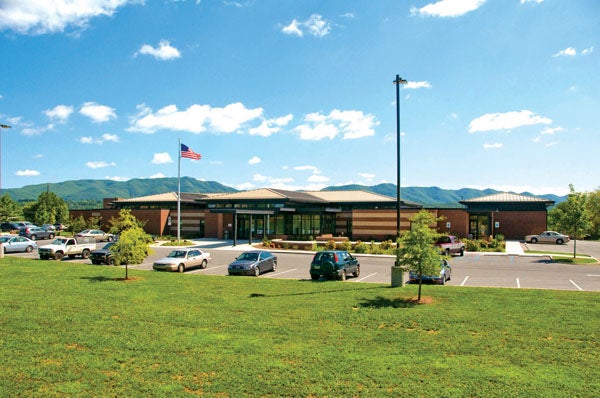ETSU’s Community Health Centers receive $1.9 million HRSA grant
Published 4:05 pm Thursday, August 12, 2021

- ETSU Community Health Center
|
Getting your Trinity Audio player ready...
|
JOHNSON CITY — East Tennessee State University’s Community Health Centers, managed by the College of Nursing, received approximately $1.9 million in grant funding from the Health Resources & Services Administration (HRSA) that will help provide continued and enhanced health care services throughout the COVID-19 pandemic and beyond.
On April 1, HRSA awarded more than $6 billion from the American Rescue Plan to Community Health Centers nationwide. Health centers will be able to use the funds to support and expand COVID-19 vaccination, testing and treatment for vulnerable populations; deliver needed preventive and primary health care services to those at higher risk for COVID-19; and expand health centers’ operational capacity during the pandemic and beyond, including modifying and improving physical infrastructure and adding mobile units.
HRSA-funded health centers are community-based and patient-directed organizations that deliver affordable, accessible, quality and cost-effective primary health care to medically underserved communities and vulnerable populations, including high-need urban, rural and frontier communities across the country.
ETSU College of Nursing has four Community Health Centers — Johnson City Community Health Center, Johnson City Downtown Day Center and two school-based health centers in Hancock County.
“ETSU Community Health Centers play a vital role in providing essential health care to all members of our community, including underserved populations,” said Dr. Roslyn Robinson, ETSU Health CNO and College of Nursing associate dean of practice and community partnerships. “This grant funding will allow us to continue to grow and improve our outreach after what has proven to be a very difficult year due to the COVID-19 pandemic.”
The funding will help ETSU’s Community Health Centers maintain and increase capacity and workforce to be able to continue to provide primary and specialty care to patients. The funding also will be used to expand dental services at the Johnson City Community Health Center, as there has been a significant backlog of dental services as a result of COVID-19.
“This grant funding will allow us to continue to promote awareness of our health centers as a wonderful resource for our community,” said Silas Tolan, executive director for the Office of Practice and College of Nursing Practice Clinics. “We also want to take the opportunity this week, which is designated National Health Center Week, to spotlight the role of health centers in the Appalachian Highlands.”
HRSA-funded health centers serve 1 in 5 people living in rural communities, and 1 in 11 people nationwide. More than 91% of health center patients are individuals or families living at or below 200% of the Federal Poverty Guidelines, and nearly 63% are racial or ethnic minorities.
The Johnson City Community Health Center provides acute, chronic and preventative care; pediatrics; behavioral and mental health services; OB/GYN services; mammography; diagnostic testing; radiology; medication assistance and pharmacy services; diabetes management and education; dental services; and telehealth.
Most health insurance is accepted, including Medicare and TennCare. No one is turned away for inability to pay for services, and sliding fee discounts are available for qualifying patients. Spanish language interpreters are also available.
In addition to the four community health centers, the ETSU College of Nursing also manages the Mountain City Extended Hours Health Center, University Health Center and the University School clinic.
To learn more about ETSU’s Community Health Centers, visit www.etsu.edu/nursing/clinics.




